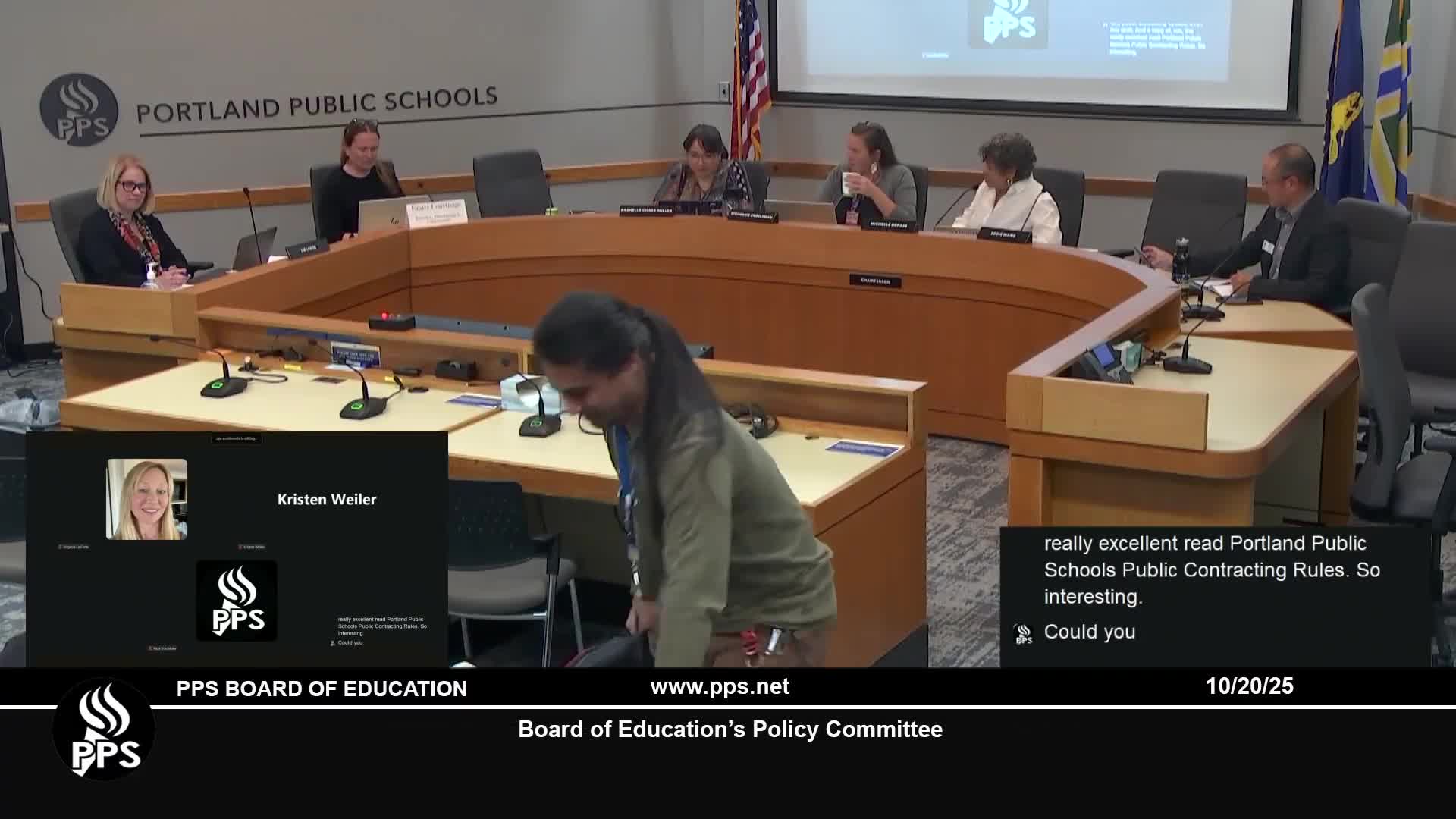Policy committee refers proposed contracting-rule changes, including $250,000 threshold, to full board
Get AI-powered insights, summaries, and transcripts
Subscribe
Summary
Staff told the committee that raising the board approval threshold from $150,000 to $250,000 would align district rules with state procurement thresholds and inflation; committee members asked for more audit and comparative data before a final decision.
The Portland Public Schools Policy Committee on Oct. 20 voted to refer proposed revisions to the district's public contracting rules to the full board, including a staff recommendation to raise the board approval threshold from $150,000 to $250,000 and remove a limited post-award reporting rule.
Emily Cortnidge, director of purchasing and contracting, told the committee the changes were first proposed in 2023 to align district rules with recent legislative changes and the attorney general model rules. She said keeping the $150,000 threshold unchanged since 2010 has reduced buying power; staff ran a consumer-price-index calculation showing $150,000 in 2010 equates to roughly $224,000 in 2025.
Why it matters: Raising the threshold would reduce the number of contracts that must be brought before the full board for approval and would align Portland Public Schools with many local public agencies whose board-approval thresholds already sit at $250,000 or higher. Staff argued the change improves administrative efficiency and keeps formal procurement thresholds consistent.
Community and committee concerns: During public comment, Angela Bonilla said the proposed increase 'would be a 66% increase in the amount that contracts can come without oversight by this public body,' and urged the committee not to reduce board oversight ahead of multilateral labor bargaining this year. Committee members noted outstanding items from a 2020 contracting audit and requested more data about how higher thresholds affect transparency and outcomes in larger urban districts before a final decision.
Other proposed changes reported by staff include removing a post-award reporting requirement tied to contracts that exceed 125 percent of initial value (a reporting requirement staff said had become redundant), delegating limited authority to the superintendent for contracts paid entirely from fee-based revenues (for example, certain large student-travel or extracurricular contracts paid with fundraising), and aligning the district's offer-of-judgment threshold with board policy on liability claims.
Audit and next steps: Committee members asked the audit committee to continue tracking outstanding recommendations from the 2020 contracts audit, including five recommendations described in committee discussion as needing substantive attention. Staff said contract-management reports (vendor, contract description, spend, manager, start/end dates) can be produced on request and that more comparative data from large urban districts can be added to the full-board packet.
Ending: The committee referred the proposed contracting rule changes to the full board for debate and public comment; committee members requested additional audit follow-up and comparative benchmarks to accompany the staff report.
